Hummus is a popular dip or spread made from cooked, mashed chickpeas or other beans, blended with tahini, olive oil, lemon juice, salt, and garlic.
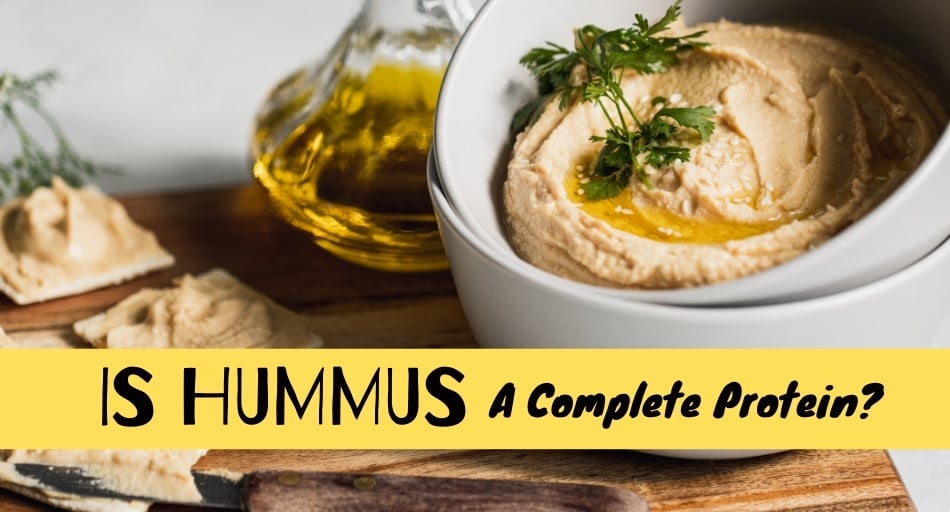
It's not only popular in the Middle East anymore, but also gaining popularity in other parts of the world.
However, many vegetarians and vegans are wondering if hummus is a complete protein. Let's find out.
Table of Contents
- Is hummus a complete protein?
- Why isn't hummus a complete protein?
- How can you make hummus a complete protein?
- What are the types of hummus?
- What is the most popular flavor of hummus?
- Which type of hummus is best for you?
- How to prepare hummus?
- What are some good ways to enjoy hummus?
- Is hummus a vegan food?
- What are the health benefits of hummus?
- What are some possible side effects of eating hummus?
- Conclusion
Is hummus a complete protein?
Hummus is not a complete protein because it does not contain all the essential amino acids that our body needs. However, hummus is a healthy food choice and it's important to remember that it should be eaten as part of a balanced diet that includes other sources of protein.
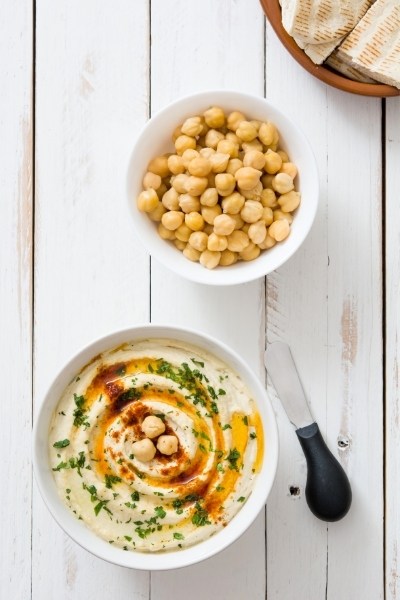
Why isn't hummus a complete protein?
Hummus isn't a complete protein because it doesn't contain all the essential amino acids that our body can produce.
However, when hummus is eaten with other plant-based proteins, it provides all the essential amino acids needed for a healthy diet.
This is because plant-based proteins, such as those found in whole-grain bread and other plant-based foods, contain all the essential amino acids needed by the body.
Because hummus is made of chickpeas, it has a similar amino acid profile. Therefore, it's missing one essential amino acid - methionine.
Methionine contains sulfur and can produce other sulfur-containing molecules in the body. Plus, it plays a paramount role in initiating the process of creating new proteins inside your cells.
How can you make hummus a complete protein?
You can make hummus a complete protein by adding other plant-based proteins, such as whole-grain bread or other plant-based foods, to your diet.
When you eat hummus with other plant-based proteins, you provide all the essential amino acids.
High methionine foods include nuts, beans, and whole grains like quinoa, tofu, milk, cheeses, as well as turkey, beef, and fish.
What are the types of hummus?
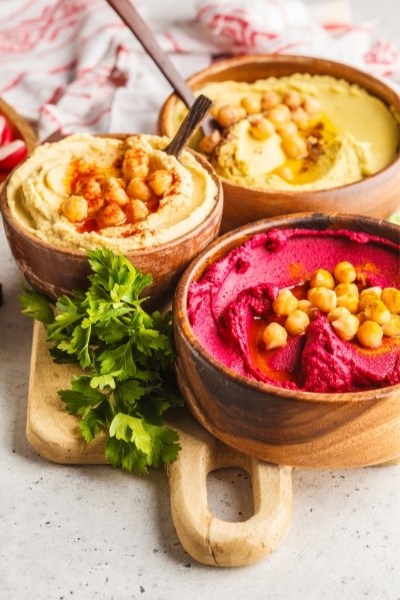
There are many different types of hummus, including traditional, flavored, and specialty varieties.
Traditional hummus is made with chickpeas, tahini, olive oil, lemon juice, salt, and garlic. Flavored hummus is made with additional ingredients, such as herbs, spices, and fruits.
Specialty hummus varieties include beet, black bean, edamame, and roasted red pepper hummus. Each type has its unique flavor and texture.
Whether you're purchasing pre-made hummus or planning to make your own at home, here are some of the most popular hummus flavors:
- Classic
- Roasted garlic
- Roasted red pepper
- Lemon rosemary
- Everything (everything bagel seasoning included)
- Black bean
- Sundried tomato
- Jalapeno
- Tuscan herb
What is the most popular flavor of hummus?
The most popular flavor of hummus is traditional hummus that's made with chickpeas, tahini, olive oil, lemon juice, salt, and garlic.
It has a smooth, creamy texture and a slightly nutty flavor. It is also the most versatile type of hummus and can be used as a dip, spread, or main course.
Which type of hummus is best for you?
The type of hummus best for you depends on your taste preference and dietary needs. If you are looking for traditional hummus, try making your own at home.
If you are looking for flavored hummus, there are many different types available at your local grocery store.
If you have dietary restrictions, many specialty hummus varieties are gluten-free, vegan, and soy-free. So, no matter what your needs are, there is a type of hummus that is perfect for you.
How to prepare hummus?
Hummus is a simple food to prepare. It can be made at home with just a few ingredients, or you can purchase it pre-made at the store.
To make hummus at home, start by cooking or canning chickpeas or other beans. Then, mash the beans with a fork or food processor.
Next, add tahini, olive oil, lemon juice, salt, and garlic to the mashed beans and blend until smooth. If the hummus is too thick, you can add water, a little at a time, until it reaches the desired consistency.
Once the hummus is smooth, it is ready to enjoy. If you are not going to eat it right away, store the hummus in an airtight container in the fridge for up to a week.
What are some good ways to enjoy hummus?
Hummus can be enjoyed in many different ways. Some good ways to enjoy hummus include spreading it on a piece of whole-grain bread, using it as a dip for vegetables or crackers, or eating it as a side dish.
Hummus is also a good addition to many recipes, such as salads, wraps, and rice dishes. Enjoying hummus with a variety of foods helps to provide a variety of nutrients and flavors.
Is hummus a vegan food?
Yes, hummus is vegan food. It is made from cooked, mashed chickpeas or other beans. Hummus does not contain any animal products. This makes it a good option for vegans and those who follow a plant-based diet.
What are the health benefits of hummus?
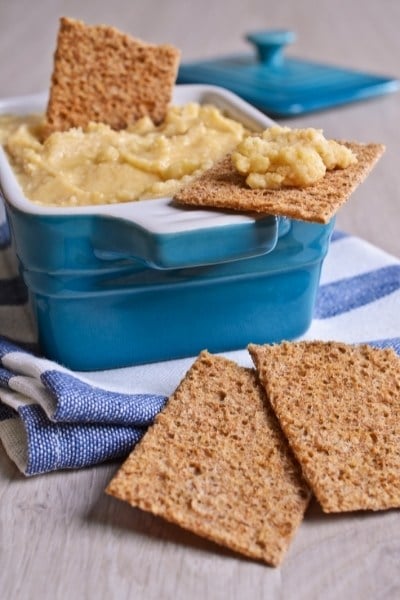
Hummus is a nutritious food that is high in protein and fiber. It is also a good source of vitamins and minerals, including iron and magnesium.
Hummus may help to improve blood sugar control and reduce inflammation. When eaten with other plant-based proteins, hummus can provide all the essential amino acids needed for a healthy diet.
Including hummus as part of a healthy diet may help to improve your overall health.
What are some possible side effects of eating hummus?
Some possible side effects of eating hummus may include gas, bloating, and stomach pain. These side effects are typically due to the high fiber content of hummus.
If you experience these side effects, try eating hummus with less fiber. This may help to reduce the likelihood of experiencing these side effects.
If you experience severe side effects, such as diarrhea or vomiting, stop eating hummus and seek medical attention.
Conclusion
In conclusion, eating hummus is not only delicious but also nutritious. Packed with protein, fiber, vitamins, and minerals, this simple dish can be a healthy and filling snack or meal.
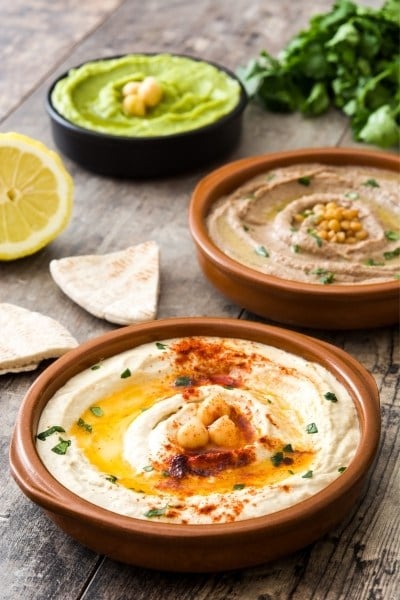
To get the most out of the protein in hummus, it's important to pair it with other sources of protein. This will help to provide all the essential amino acids needed.
Some good protein sources to pair with hummus include whole-grain bread, vegetables, and legumes.
Pairing hummus with a variety of foods helps to provide a variety of nutrients and flavors.
Whether you enjoy it as a snack or a meal, hummus is a great choice for anyone looking for a healthy and delicious option. So go ahead and enjoy some hummus today.
Sources: Nutrition Data, USDA, The Journal of Nutrition
